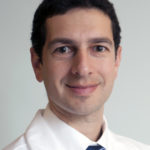
The practicing rheumatologist needs a basic understanding of the scientific principles that underlie autoimmune and inflammatory disorders. However, as both basic and clinical science knowledge grows, incorporating science material into undergraduate and graduate medical education is becoming increasingly more challenging.
Spicing up Science Education: How to Effectively Incorporate Science into Med Ed on Sunday from 2:30 – 4:00 pm in Room 23 A will explore these challenges and potential solutions for enhancing the role of science in medical student, residency, and rheumatology fellowship education.
“An understanding of basic science pathways and the pathophysiology of disease are critical to the practice of all medicine, but especially important to our field, where there are new therapies targeting specific pathways coming out every year,” said symposium moderator Eli Miloslavsky, MD, of Massachusetts General Hospital. “There are a lot of uncertainties in the diagnosis of diseases where an understanding of the basic science may help. In addition, there is data showing that incorporating basic science into teaching actually helps our trainees learn better in the future, making them more effective lifelong learners.”
Among the scheduled presentations, Christopher T. Ritchlin, MD, MPH, of the University of Rochester in New York, will discuss the current landscape of medical training, the challenges of incorporating science into undergraduate and graduate medical education, and the role that science education plays in the development of lifelong learning skills.
“The time allotted to teaching applied basic science and pathophysiology has declined over the last decade due to factors such as the rapid pace of scientific discovery, time limitations for faculty and trainees, and the changing expertise and interests of educators,” Dr. Miloslavsky said.
Bethany A. Marston, MD, of the University of Rochester, and Michael Pillinger, MD, of New York University School of Medicine, will talk about strategies and resources to overcome barriers to enhancing the role of science in medical education, including the role of storytelling in basic science education and the role of web-based tools for developing basic science curricula.
“We’re going to talk about the introduction of a new ACR program that is currently developing online basic science modules that can be administered by the faculty in any fellowship program. This will be a centralized resource for dynamic educational sessions designed to engage learners in basic science content,” Dr. Miloslavsky said. “During the symposium, we will also give examples of how faculty can incorporate teaching basic science on bedside rounds and other teaching venues without being experts in basic science themselves.”
The symposium’s final presenter, Sheetal Desai, MD, of the University of California, Irvine, will describe strategies to appeal to different generations of learners, including how to develop tools to integrate effective and engaging TED-style talks into basic science curricula.
“Rheumatology is anchored strongly to a foundation of basic science, with the principles of immunology at the heart of our understanding of rheumatic diseases and their treatments,” Dr. Miloslavsky said. “Our hope is that both educators and basic scientists who do a lot of basic science teaching will walk out of this symposium reinvigorated to think about how to incorporate more basic science into the curriculum they lead and the teaching they do and with tools that they can use immediately when they get back to their institutions.” Dr. Miloslavsky said.
